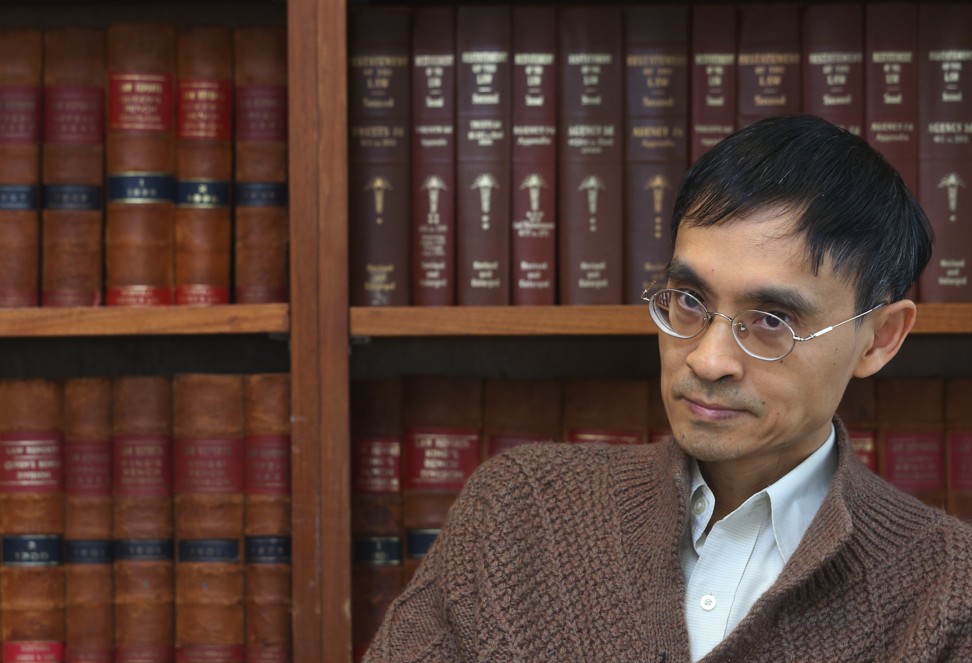
Hong Kong gets more power under joint checkpoint plan, not less, legal scholar argues
Basic Law Committee member Albert Chen’s argument on ‘co-location’ adds to debate on true intent of Article 20 of the Basic Law
An expert on Hong Kong constitutional law argued on Monday that a contentious plan to have a joint checkpoint with the mainland for the high-speed rail link to Guangzhou would actually grant the city more power instead of undermining its authority.
Basic Law Committee member Albert Chen Hung-yee said the city’s high degree of autonomy would be reflected by the “co-location” arrangement, which opposition lawmakers and other critics are nervous about because it would allow national laws to be enforced on Hong Kong soil.

Chen, a law professor at the University of Hong Kong, argued that it would be to the city’s benefit to be given the authority to enact a new law to facilitate operations at the joint checkpoint.
“Hong Kong still has the freedom to decide whether it will use the power given to it by the NPCSC,” he said.
The current arrangement was consistent with the legislative intent of Article 20, he added.
However, another legal expert, Johannes Chan Man-mun, challenged the legal basis of the plan as he accused the government of “twisting” a constitutional provision for a purpose it was not intended to serve.
“What exactly is the additional power that the NPCSC has to grant this time [by invoking Article 20]?” the former HKU law dean said. “It is the power of the Hong Kong Special Administrative Region to relinquish its autonomy in relation to the part of the area to be designated as within the jurisdiction of the mainland. How could that be additional power – a power to give up power?”
This will be a classic case of twisting a provision for a purpose which it is not intended to serve
Chan went on to argue that there was no restriction on the use of that power under Article 20 as it was not intended to be used to curtail Hong Kong’s powers.
“This will be a classic case of twisting a provision for a purpose which it is not intended to serve,” he said. “It is a bad precedent, but reinforces that the meaning of the Basic Law is what the central government wants it to mean. That itself is a violation of the rule of law.”
A mainland legal scholar who asked to remain anonymous admitted the rules under Article 20 were less clear than those under Article 158, which has allowed the national legislature to interpret the Basic Law.
“It is true that Article 20 is less clear about the circumstances under which it should be invoked,” the scholar said. “However, on the positive side this allows flexibility.”
He added that Hongkongers “need not over-worry about an abuse” of Article 20.
But HKU principal law lecturer Eric Cheung Tat-ming was worried that unrestricted authorisation under Article 20 would allow Beijing to achieve its ends by bypassing other Basic Law provisions, such as granting the city’s leader the right to enact national security legislation without Legco’s approval.
Michael Davis, a former law professor at HKU, echoed the concerns. “Would Beijing try to use Article 20 to grab more power which would violate the Basic Law? We do not know,” he said.
Additional reporting by Stuart Lau in Beijing

